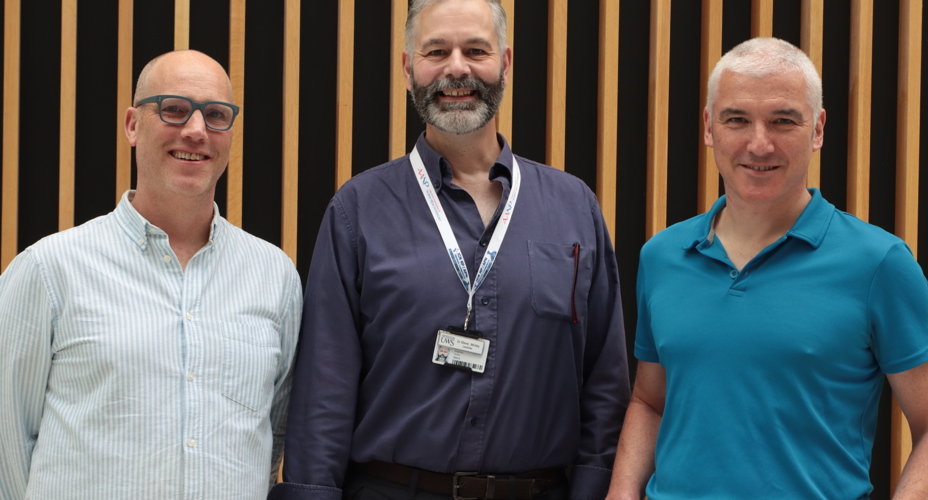Wednesday 23 07 2025

Ensuring newly Registered Nurses are prepared to tackle the increasingly complex care needs of the ageing population is behind a new research project at UWS.
Selected and funded by the Royal Society of Edinburgh (RSE) as part of its spring research awards programme the project aims to evaluate the impact of an enhanced learning module delivered to around 1,500 new nurses, focused on preparing them for the real-life scenarios they will face when it comes to caring for a deteriorating older patient.
The team at UWS comprises Dr Steve Mullay as Principal Investigator, alongside Kevin Lang, Murray Sherriff-Short, Claire Brew and Kelly McCourtney from the School of Health and Life Sciences.
Dr Steve Mullay commented: “We are delighted to see our project selected by the Royal Society of Edinburgh. Populations are growing older, and individual health and wellbeing needs are becoming more complex as a result. As such, there is a recognised need to make processes of nursing care more person and context centred.
“This project aims to gain insights into how well-prepared newly Registered Nurses felt they were to face this, after undertaking a new module within our nursing degree. The study will focus on two important skills within it: reliable and accurate patient assessment, and safe and effective intravenous medication administration, particularly in an acutely deteriorating patient in a fast-changing clinical situation.”
The study will focus on two important skills within it: reliable and accurate patient assessment, and safe and effective intravenous medication administration, particularly in an acutely deteriorating patient in a fast-changing clinical situation.
Dr Steve Mullay, Principal Investigator, UWS
The module uses enhanced scenario-based learning, in which the nursing students contextualise learning by applying it to realistic patient situations. This study will use workshop discussions with the new Registered Nurses to gain insights into how well the module prepared them to function in today’s healthcare settings. The findings will not only improve the module itself, but will be available to other educational programmes, contributing to better nursing practice overall.
Professor James Miller, Principal and Vice-Chancellor of UWS, who is also a Fellow of the Royal Society of Edinburgh, said: “Congratulations to the team on receiving this recognition from the RSE for their important research project. Focusing on the skills needs of the workforces our graduates enter is a key priority for us at UWS, and this project directly embodies that.
“The team have identified an opportunity to enhance the student learning experience to ensure they make an invaluable impact as new nurses in the care of their patients – at all stages of their lives. The project also feeds into the United Nations Sustainable Development Goals, particularly goal three: good health and wellbeing.”
Congratulations to the team on receiving this recognition from the RSE for their important research project. Focusing on the skills needs of the workforces our graduates enter is a key priority for us at UWS, and this project directly embodies that.
Professor James Miller, Principal and Vice-Chancellor of UWS
The RSE’s Research Awards Programme runs twice a year in spring and autumn. It aims to support Scotland’s research sector by nurturing promising talent, stimulating research in Scotland, and promoting international collaboration.
RSE Vice President, Research, Professor Anne Anderson OBE FRSE, commented: “The RSE's Research Awards Programme plays a vital role in strengthening Scotland's dynamic research community. I do not doubt that the recipients of these prestigious RSE awards will advance knowledge and make meaningful contributions to Scottish society. On behalf of the RSE, I congratulate these exceptional researchers and their international partners, and I eagerly anticipate the impact of their work.”
This research aligns with the United Nations Sustainable Development Goals (UNSDGs), specifically Goal 3: Good Health and Well-Being.